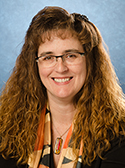Page Content
 Each year, the Alberta Teachers’ Association’s 21 specialist councils offer an abundance of opportunities for teachers to learn, connect, create and contribute to professional communities of practice. Each council receives financial and organizational support from the Association, and in turn, these groups self-organize into provincially-based governing bodies that support regional or special interest groups; create publications to share their practices and philosophies with other teachers; and offer workshops, edcamp and makerspace events and conferences.
Each year, the Alberta Teachers’ Association’s 21 specialist councils offer an abundance of opportunities for teachers to learn, connect, create and contribute to professional communities of practice. Each council receives financial and organizational support from the Association, and in turn, these groups self-organize into provincially-based governing bodies that support regional or special interest groups; create publications to share their practices and philosophies with other teachers; and offer workshops, edcamp and makerspace events and conferences.
Some specialist councils also honour colleague contributions through awards programs, and support those newest to the profession in a variety of formal and informal mentorship activities. Some specialist councils offer grants and bursaries to support classroom research, continuing education or conference attendance, and most host websites of collaboration and community. Students are encouraged to join a specialist council to build their professional network.
Specialist councils also offer tremendous service to the profession as a whole, serving as a collective of teachers who influence the development of curricula, resource selection and framework development, and offer commentary on a wide variety of issues central to the profession. Many of the Association’s specialist councils have ongoing contact with Alberta’s teacher preparation programs, host representatives from government ministries or have formal partnerships with non-profit/non-governmental organizations or national and international subject/specialty organizations.
For a sample of the extraordinary efforts teachers summon in support of professional learning and community building, consider the following examples from the 2014/2015 school year:
The Council for School Leadership (CSL) sent representatives to committees related to the development of standards for school principal standards and hosted supper meetings with highly regarded international scholars such as Dr. Pasi Salberg, Dr. Sam Sellar and Dr. Simon Breakspear. CSL also hosted uLead, a world-recognized learning event for school leaders.
The English as a Second Language Council (ESLC) engaged in ongoing work with the English Language Learner steering committee, created a web-hosted video titled ESL Tips and provided presentations to school districts on ESL Benchmarks.
The Guidance Council (recently renamed as Council of School Counsellors, the CSC) and English Language Arts Council (ELAC) are two of several councils that host peer-reviewed journals, providing opportunities for academics to connect theory and practice; they also offer enhanced websites that convey timely information to members.
Several councils are active in online PD. The Social Studies Council (SSC) hosted a 900-member strong Ning; the Outreach Education Council (OEC) hosted a one-day workshop/collaboration event to produce and publish online curriculum materials for member use; while the Council for Inclusive Education (CIE) piloted Faces of Inclusion online, featuring the success stories and personal experiences of teachers in their inclusion practices.
Conseil francais partnered with the North Central Teachers’ Convention Association (NCTCA) and the Canadian Teachers’ Federation (CTF) to provide a wide variety of sessions at the convention in support of francophone and French immersion teachers.
The Second Language Intercultural Council (SLIC) hosted 10 special interest groups (SIGs) to support PD in specific languages and cultures from Arabic to Polish and beyond.
These examples are but a small sample of the extraordinary efforts that teacher volunteers bring to their leadership roles on councils. Building communities of practice and providing professional learning by teachers for teachers is what specialist councils are all about.
Interested in getting involved? Contact your specialist council to find out how to volunteer or attend an annual general meeting.
Student membership in councils is free; active members can choose one free council membership by subscribing online at www.teachers.ab.ca. Memberships to additional councils can be purchased for a nominal fee. ❚
More information about specialist councils as well as website addresses can be found on the Alberta Teachers’ Association website at www.teachers.ab.ca: For Members>Professional Development>Specialist Councils.
